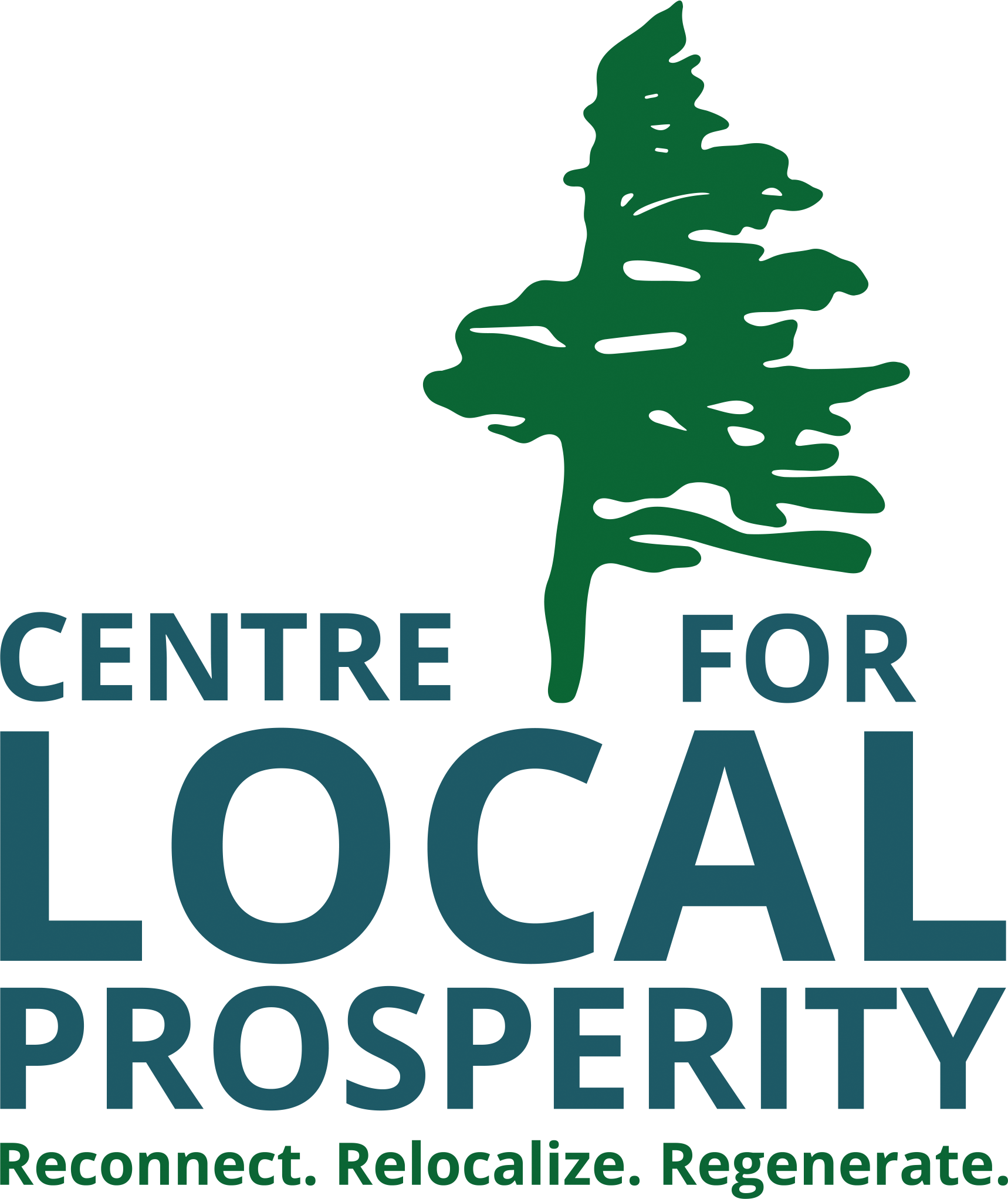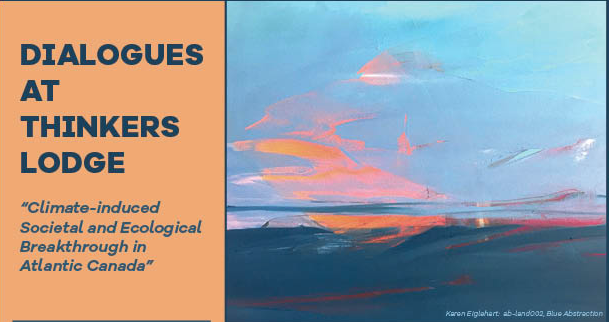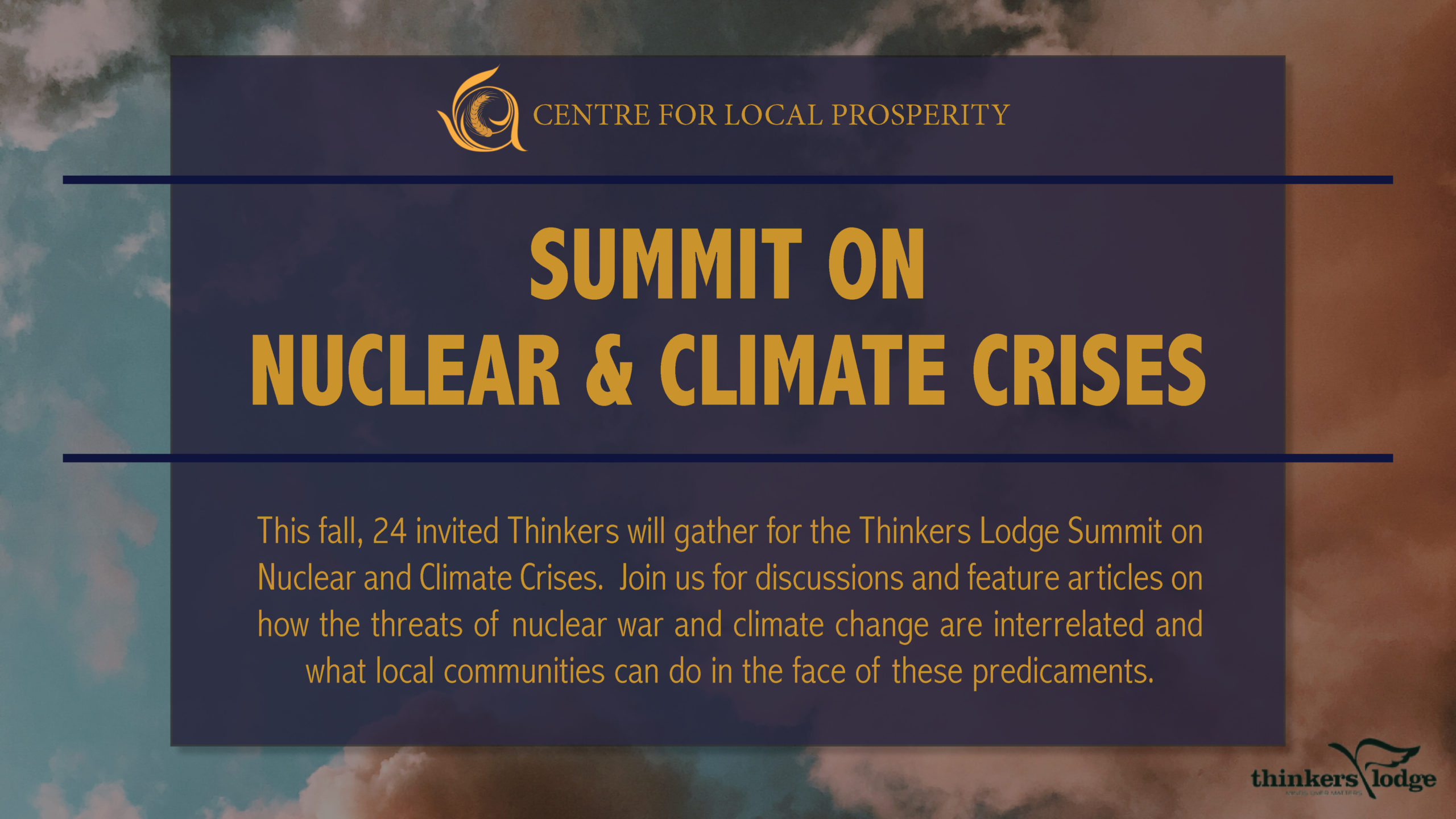Governing for Ecological Citizenship in Atlantic Canada
Virtual , CanadaPolitical leadership in the 21st century must find the courage to help the public understand and face the difficult reality of societal and ecological breakdown. Such leadership must transcend party politics and narrow parochial municipal self-interest. This dialogue may help Atlantic Canadians navigate a predicament unlike any that humanity has ever faced.
Economic Growth at the Crossroads: A Shift to a Steady State Regenerative Economy in Atlantic Canada
Virtual , CanadaOur addiction to economic growth measured by Gross Domestic Product (GPA) has driven humanity and biodiversity to the brink of collapse. There are alternative economic systems and means to measure wealth that are better suited to the demands of the 21st century. This dialogue lays out those alternatives for Atlantic Canada as a bioregion and the people who would like to continue to live, work and raise their families here.
Empowering the Rights of Nature Revolution in Atlantic Canada
Virtual , CanadaA system of laws that do not represent all members of a society and the natural world equally, serves neither. This dialogue on litigation and a bill of rights for nature will help Atlantic Canadians demand and benefit from a more holistic jurisprudence.
Living Communities and Inclusion in Atlantic Canada
Virtual , CanadaBuilding living buildings and living communities is rooted in a deep understanding of what it means to be inclusive. Adopting an ethic of place is a good point of beginning: An ethic of place respects equally the people of a region and the land, animals, vegetation, water, and air. It recognizes that people revere their physical surroundings and they need and deserve a stable, productive economy that is accessible to those with modest incomes.
Crossing to Safety: Discovering our Common Home in Atlantic Canada
Virtual , CanadaE.O. Wilson once remarked “the real problem of humanity is the following: we have paleolithic emotions; medieval institutions; and god-like technology.” If Wilson’s summary is close to correct (and there is a vast body of evidence to suggest he is); as climate breakdown continues to intensify (as science is able to demonstrate); as the number of climate refugees seeking safe haven increases (as an array of world bodies, including the United Nations, have now shown); what emotional, institutional and technological makeover is Atlantic Canada prepared to undergo if we make the conscious decision to be that safe haven for climate displaced persons? If any of us are going to find shelter from what Secretary General of the United Nations General António Guterres calls the ‘winds of madness’, then some place, some collective citizenry, must show the world the way. This dialogue hopes to plant seeds that may one day ripen into a common home for humanity, a sustainable place for all of life. This begins, as it must, with a collective emotional, institutional and technological expression of neighbourliness among Atlantic Canadians.
Humanity and 76 years of Nuclear Threat
Virtual , CanadaSince 1945 with the dropping of atomic bombs on Hiroshima and Nagasaki, humanity has been facing the threat of nuclear war. The cold war of the 1950’s and 1960’s saw […]
Our Global Climate, Our Human Prospect
Virtual , CanadaThe onset of the effects of climate change has been faster and more profound than many of the climate scientists had predicted. Tripping positive feedback loops, such as methane release […]
Bringing Global Realities into the Classroom
Virtual , Canada“May you live in interesting times.” This ancient Chinese saying is certainly true for the youth of today. How can students today learn about and deal with the realities of […]
Thinkers Lodge and Pugwash High School – An Open Dialogue on the Crises of our Age
Pugwash High School 192 Church Street, Pugwash, Nova Scotia, CanadaAn Open Dialogue on the Crises of our Age During the Thinkers Lodge Summit on Nuclear and Climate Crises, several Thinkers will present to the students assembled at Pugwash District […]
Dig In 2.0 Atlantic Food Systems Summit
PEI Farm Centre 420 University Ave., Charlottetown, Prince Edward Island, CanadaDig In 2.0 Atlantic Food Systems Summit is coming to Charlottetown, PEI November 22-24, 2024! After a successful first Dig In event in November 2022 and the resulting creation of […]





